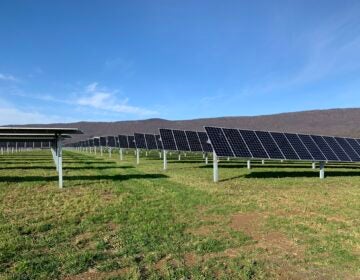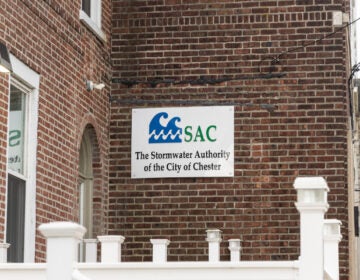A day at the beach reminds why action on climate change comes so slowly
ListenA couple of weekends ago, I spent a pleasant two days in Cape May.
Sure, as my wife noted frequently, the motel room I booked for this last-minute jaunt reeked of Lysol, and of ugly things Lysol couldn’t fix. But the sun was glorious, the beach wide, and the Exit Zero rum punch intoxicating.
Strolling about Cape May, past all that gingerbread trim, all those charming porches, I felt the full emotional power of a truth that I learned intellectually last summer.
Jersey Shore towns are not just tourist spots. For so many, they are home, laden with generational meaning, or at the very least, a seasonal home that features heavily in a family’s narrative of who it is. .
This point came up often last summer when WHYY held its Ready for Next Time? community forums about how to rebuild the Shore post-Sandy.
A key topic was climate change and sea-level rise, which threaten to obliterate huge chunks of the Shore by the end of the century, or sooner.
In the forums, we kind of forced participants to discuss the concept of “planned retreat.”
This school of thought argues it makes no sense to rebuild some Shore spots that are doomed to be taken back by the ocean within decades, to invest yet again in vulnerable places. Instead, it advocates a generational strategy of gradually moving the human footprint away from the dunes, letting some spots return to nature, concentrating development in spots outside the flood zone.
Some residents reacted vehemently against this notion.
“This is my home. Our home. Nobody from outside gets to come in and tell me I have to move from my home,” one said, speaking for many.
Soaking in Cape May’s weathered charm, its layered veneer of memories, I got what he was saying in a newly visceral way.
Others at the forums had an interestingly compartmentalized way of looking at “planned retreat.”
“Of course, this is what should be done, what makes the most sense for the long haul,” said one surfer/contractor from Long Beach Island. “Everyone in this room knows that. But we also know it’ll never happen until it’s too late. There’s too much politics, too much money riding on the way the Shore is now.”
These were thoughtful folks, not fact-averse climate change deniers.
But their financial and emotional stake in the Shore status quo is so big it prevents them from reven discussing how the embedded habits of their community and their families must change in light of planet’s warming.
When facts colilde with values, emotions and traditions, facts rarely win – a fact that champions of facts often fail to grasp.
It’s tempting for the people of the Shore to take refuge in the false shelter proposed by the deniers. This isn’t because they are dumb or trapped in ideology. It’s because they are human.
Getting past that syndrome is a core challenges facing our nation.
We can’t keep ducking the hard, emotional work that climate change demands of us. But we shouldn’t pretend that this work is easy for the people with the most to lose in the short term.
WHYY is your source for fact-based, in-depth journalism and information. As a nonprofit organization, we rely on financial support from readers like you. Please give today.




